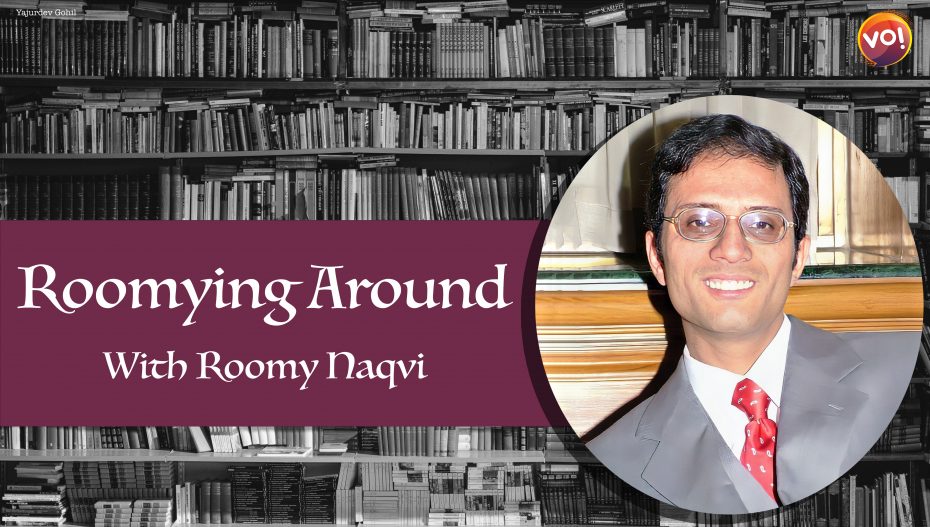Writing about identity in today’s times is a sure shot recipe for disaster. Also, the moment, one utters the word ‘identity’, terms such as ‘fractured identity’, various social identities and a lot more come to the fore.
Have you ever thought about the concept of tabula rasa (blank slate) that the English philosopher, John Locke gave to the world? Locke said that a child, when she is born, she is a tabula rasa and the resultant life experiences make her what she is. I would like to look at the idea of identity, albeit from a philosophical perspective.
In socially ravaged times across the world, Who am I? What is my purpose? Or am I ever myself? – are pertinent questions. These questions were pertinent throughout literature, history, as well as science and, have been so for centuries.
Looking at the celebrated Czech novelist, Milan Kundera’s novel, Identity, might offer some answers, but perplexing ones. One important question in Milan Kundera’s novel, Identity, is about the nature of one’s own identity and whether it remains the same over a period of life of lived, half-lived relationships. Thus, a question that springs from this is also whether ‘identity’ as such is a marker that we carry within us, or is it shaped by the wider world around us. Interestingly, in the novel, Kundera even talks about a character, F. who has returned to life from a coma. His experiences are so difficult to fathom because even when he’s recovered, his sense of perception about his own self is quite altered.
Some Quotes Milan Kundera’s novel, Identity:
“How is it possible that someone could slip out of surveillance and disappear without a trace?” – Milan Kundera, Identity, translated by Linda Asher, 1998.
“How could she feel nostalgia when he was right in front of her? How can you suffer from the absence of a person who is present?” – Milan Kundera, Identity
“Friendship, to me, was proof of the existence of something stronger than ideology, than religion, than the nation.”
A. K. Ramanujan (1929-1993) was a poet, folklorist, translator and so much more that you could call me his devotee. Ramanujan was a tri-lingual author, essentially. One of his students is the famous postcolonial and global scholar, Arjuna Appadurai—this Appadurai confirmed to me at a major seminar in New Delhi a few years ago. Ramanujan was known for revising his poems 50-60 times. I completed my M.Phil dissertation on his English poems in 1996 and missed meeting him in my life. In one of his poems, “Self Portrait”, Ramanujan says:
Quote from the poem:
“I resemble everyone
but myself, and sometimes see
in shop-windows
despite the well-known laws
of optics,
the portrait of a stranger,
date unknown,
often signed in a corner
by my father.”
(A. K. Ramanujan, “Self Portrait”)
This certainly complicates even the idea of self-identity. Ramanujan further complicates the idea of identity in a globalized world with a poem “[How Can One Write About Bosnia]. In the first stanza, he says:
Quote from Poem:
“How can one write about Bosnia,
Biafra, Bangladesh, just to take
only the atrocities that begin with B,
alphabetize cruelties…”
You can read the entire poem at the Poetry Foundation website: [How Can One Write about Bosnia] by A. K. Ramanujan | Poetry Magazine (poetryfoundation.org)
For me, personally, that line “alphabetize cruelties”, it hits like a sharp jab in the throat. There are many other poems by Ramanujan where that talks about displaced identities. Maybe, we will go to them in future columns, in other contexts. Just as an aside, his translations are an oeuvre by themselves. One of his translated poems was featured on the London Underground and a line of that poem forms the title of Vikram Chandra’s novel, Red Earth and Pouring Rain. The same Vikram Chandra who also wrote Sacred Games.
Abbas Kiarostami is a legend of world cinema, though he was Iranian. One of his acclaimed movies was Close-Up. You can watch Abbas Kiarostami’s Close-Up (1990) online with English subtitles. It has a very interesting plot and something that actually happened in real life. The movie tells the story of a real life man, a movie crazed fan to be precise, Hossain Sabzian who impersonated the legendary Iranian filmmaker, Mohsen Makhmalbaf. Sabzian cons the unwitting family that they would act in his latest productions. Sabzian was arrested and all the characters play themselves in Abbas Kiarostami’s movie, Close-Up. The movie even includes a real-life courtroom scene. In this process, Kiarostami delves into the psyche of Sabzian and plumbs the depths of his identity. The interesting emergent questions would relate to the cult of cinema and Makhmalbaf in Iran, but it would also cast deeper insights into the individual as well possibly the social strata he came from. So many unanswered questions and newer ones cropping up all the time. That is why he is the legend Abbas Kiarostami.
Quotes from Abbas Kiarostami himself:
“Close-Up is the only one I like among my films. Not because I made the film. I actually have no opinions about my films”
“What appealed to me was mainly what was going on inside Sabzian, and this film was a form of therapy that helped us explore that. As a result of this, I realized I was such like Sabzian and the Ahankhah brothers at the same time. I also cheat and get cheated; I also need respect.”
I do not wish to bring in personal or any extraneous details, I would like to end this column here, letting you think about the myriad ways in which human identity is ‘constructed’. The operative phrase is “how human identity is constructed”. I’ll leave it here. We have covered serious, heavier topics, maybe, we will cover something else soon.
Also read: Stories of Human Resilience and Trauma and Resolution












